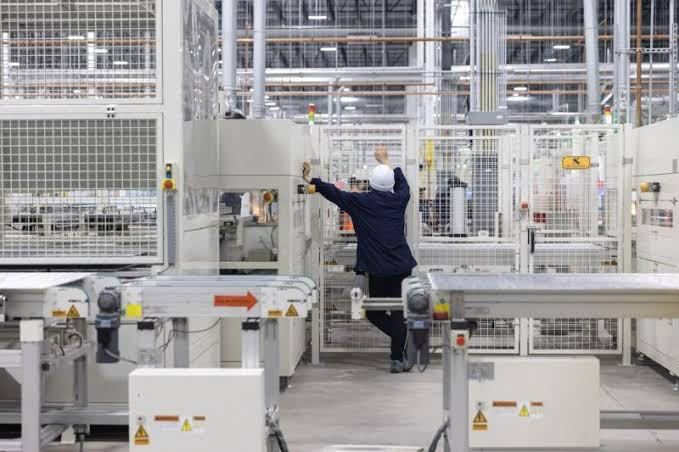KEY POINTS
- China curbs exports of key minerals vital for U.S. defense.
- Gallium, germanium, and antimony are critical for semiconductors and military tech.
- Export limits on graphite pose risks for U.S. EV battery production.
As trade tensions between the United States and China escalate, Beijing’s decision to impose export controls on critical minerals could disrupt America’s clean energy and defense sectors. The move targets key materials like gallium, germanium, and antimony, elements essential for semiconductors, solar cells, and military technology
The Chinese government also announced tighter restrictions on graphite, a crucial component for electric vehicle (EV) batteries. The export curbs are seen as a countermeasure to Washington’s efforts to restrict China’s access to advanced chipmaking technologies.
According to industry analysts, the new curbs could increase production costs and create uncertainty in U.S. supply chains, especially for companies relying on steady access to these minerals.
China tightens grip on key minerals for clean energy and defense
China’s latest export controls on gallium, germanium, and antimony are set to impact several key U.S. industries, including clean energy, semiconductors, and defense technology.
Gallium and germanium are becoming indispensable in high-performance semiconductors used in radio frequency devices and defense systems. They offer better speed, energy efficiency, and overall performance than traditional silicon-based chips. Antimony, meanwhile, is used in fireproofing materials and other military-related applications.
The U.S. Geological Survey estimates that if China’s exports of gallium and germanium were fully restricted, U.S. GDP could shrink by as much as $3.4 billion. Industry experts warn that restrictions on these minerals could also hinder the production of LED lights, solar cells, and other critical clean energy components.
Gracelin Baskaran and Meredith Schwartz, analysts at the Center for Strategic and International Studies (CSIS), highlighted the significance of these materials for U.S. national security. “Gallium, germanium, and antimony are vital inputs for defense technologies,” they noted, emphasizing that a ban on these inputs would widen the technology gap between the U.S. and China.
U.S. defense sector faces supply chain challenges
The impact of China’s export restrictions will be felt most acutely in the U.S. defense industry. Gallium and germanium are used in advanced military systems, while antimony is critical for fireproofing and ammunition.
According to Hurriyet Daily News, the CSIS report warned that “bans on vital mineral inputs will only further allow China to outpace the United States in building these capabilities.” The U.S. defense sector has faced capacity constraints in recent years, with delays in meeting production demands for military hardware.
With China accelerating its investments in munitions and weapons systems, analysts say these export controls could give Beijing a strategic edge. The restrictions on gallium and germanium are particularly concerning because they are integral to high-performance military chips used in radar systems, missile defense, and advanced communication networks.
Arun Seraphin from the National Defense Industrial Association emphasized that “this certainly could drive up costs” for defense contractors and government procurement efforts. It may also introduce significant delays in production, as companies would be forced to find alternative sources of supply or develop domestic capacity, both of which would require time and investment.
Electric vehicle industry at risk from China’s graphite controls
China’s decision to tighten export controls on graphite could spell trouble for the U.S. electric vehicle (EV) industry, which relies heavily on the mineral for battery production. While conventional gasoline vehicles do not require graphite, EVs require an average of 136 pounds (61.7 kilograms) of the material per vehicle.
The Inflation Reduction Act has driven billions of dollars in private sector investment to expand America’s EV supply chain. However, with China controlling a significant share of the world’s graphite production, these new restrictions could increase costs for automakers and slow down the U.S.’s EV transition.
The U.S. has been pushing for domestic production of EV batteries, but the reliance on Chinese-sourced graphite remains a vulnerability. Trade experts warn that without alternative sources, EV production could face supply disruptions, price hikes, and delays.
As the clean energy transition accelerates globally, control over the supply of critical minerals like graphite is becoming a strategic battleground. Companies and policymakers in the U.S. are now under pressure to diversify their supply chains to avoid future disruptions.



